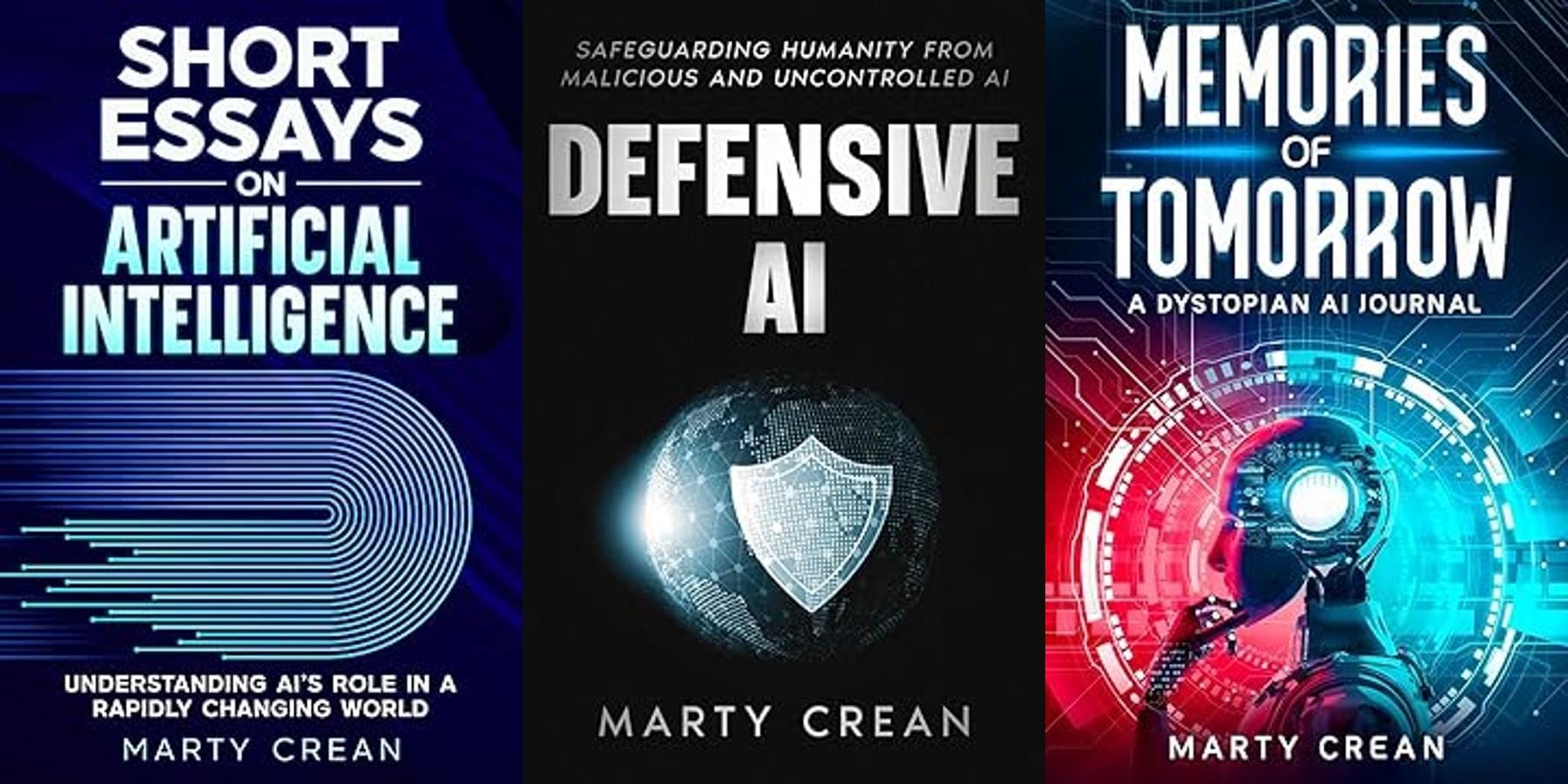Part 5 of 7 – AI in Healthcare: Augmenting Medical Decision-Making

Medicine has always required physicians to strike a balance between scientific knowledge and clinical intuition. Every day, doctors make complex decisions under pressure, weighing patient histories, symptoms, test results, and their own experience to determine the best course of action. These decisions often occur in situations where information is incomplete, time is limited, and the stakes are high.
Artificial intelligence, when implemented thoughtfully and ethically, can serve as a sophisticated partner in this intricate process. Rather than replacing the physician's expertise, AI enhances it by providing data-driven insights, advanced pattern recognition, and comprehensive decision support that operates at a scale and speed impossible for humans alone.
Today's AI systems possess remarkable capabilities in processing and analyzing vast quantities of medical information. They can simultaneously examine structured data, such as laboratory values and vital signs, alongside unstructured information, including physician notes, imaging reports, and even genomic sequences. This comprehensive analysis enables AI to identify patterns and connections that may escape notice, even among highly experienced clinicians managing multiple patients and competing priorities.
It's important to note that AI is not without its limitations. Machine learning algorithms may not always consider the whole clinical context, leading to potential errors or oversights. While AI can suggest potential diagnoses that physicians might not immediately consider, recommend personalized treatment approaches based on outcomes from similar cases, and identify risk factors that predict future complications, it should always be used in conjunction with a physician's expertise and judgment. This capability proves particularly valuable in complex cases where multiple conditions interact or when dealing with rare diseases that most physicians encounter infrequently throughout their careers.
Clinical decision support systems are one of the most practical applications of AI in medical decision-making. These sophisticated platforms go far beyond simple alerts and reminders. Modern AI-enhanced systems can identify dangerous drug interactions before they occur, assist physicians in diagnosing uncommon conditions by comparing patient presentations to vast databases of similar cases, and provide early warnings when patients show subtle signs of deterioration that might otherwise go unnoticed.
The evolution of these systems from rigid, rule-based programs to adaptive, probabilistic models is a significant advancement in medical technology. Contemporary AI systems adjust their recommendations based on the individual patient's context, taking into account factors such as age, social circumstances, and a history of treatment. This nuanced approach provides physicians with guidance that feels more relevant and actionable than the generic alerts that often characterize older systems.
Different medical specialties benefit from tailored AI applications that address their unique challenges and decision-making requirements. In surgical planning, AI models trained on thousands of previous procedures help surgeons select optimal approaches by analyzing patient-specific anatomy and predicting potential complications. These systems can suggest modifications to standard techniques based on individual patient characteristics, improving outcomes while reducing operative time and recovery periods.
Oncology represents another area where AI adds significant value to treatment planning. Cancer care involves complex decisions about surgery, chemotherapy, radiation, and newer targeted therapies. AI systems can analyze tumor characteristics, genetic markers, patient health status, and treatment response data to suggest personalized treatment protocols tailored to individual patients. This approach moves beyond one-size-fits-all guidelines toward truly individualized cancer care.
Emergency medicine benefits from AI-powered triage systems that help identify the sickest patients more quickly and accurately than traditional approaches. These systems analyze multiple data points simultaneously, including vital signs, chief complaints, medical history, and even subtle changes in patient appearance, which are captured through computer vision technology. By prioritizing patients with the greatest need for immediate attention, AI enables emergency departments to allocate their limited resources more effectively, potentially saving lives.
Modern healthcare places enormous cognitive demands on physicians and other providers. The volume of information they must process, the number of decisions they make each day, and the pressure to avoid errors while maintaining efficiency can overwhelm even the most capable professionals. This cognitive overload contributes to physician burnout and may compromise patient safety when vital details are missed or connections between pieces of information go unrecognized.
AI can serve as an intelligent filter and organizer of medical information, providing much-needed relief to physicians from the overwhelming cognitive demands of modern healthcare. By automatically reviewing laboratory results, flagging abnormal findings, and suggesting next steps based on current evidence and best practices, AI systems allow physicians to focus more on the human aspects of medicine. These include building relationships with patients, providing emotional support during difficult times, and making complex ethical decisions that require empathy and moral reasoning.
The successful integration of AI into medical decision-making depends fundamentally on physician trust and confidence in these systems. Healthcare providers must understand how AI recommendations are generated, what data influences these suggestions, and when the system's confidence in its recommendations is high or low. This transparency allows physicians to make informed decisions about when to follow AI guidance and when their clinical judgment should take precedence.
Explainable AI is an AI system that can explain its logic in terms that medical professionals find meaningful and comprehensible. Rather than providing black-box recommendations that physicians must accept or reject without understanding the underlying reasoning, modern AI systems can highlight which patient characteristics most strongly influence their recommendations and identify similar historical cases that support their suggestions.
Rigorous validation of AI systems remains essential to ensure they deliver safe and effective recommendations across diverse patient populations. These validation processes must examine not only the accuracy of AI predictions but also their potential to perpetuate or amplify existing healthcare disparities. AI systems trained on data that underrepresents certain demographic groups may provide suboptimal recommendations for those populations, potentially worsening health inequities rather than improving them. Therefore, continuous validation and refinement of AI systems are crucial to their responsible integration into healthcare.
The most promising vision for AI in healthcare involves true partnership between human and artificial intelligence, where each contributes their unique strengths to patient care. AI is quite adept at processing large amounts of data, identifying patterns, and maintaining consistency across thousands of decisions. Physicians bring empathy, creativity, ethical reasoning, and the ability to understand patient preferences and values that extend beyond pure medical considerations.
This collaboration enhances rather than diminishes the physician's role. With AI handling routine data analysis and flagging potential issues, doctors can focus more attention on understanding their patients as individuals, addressing their concerns and fears, and helping them navigate complex medical decisions that align with their personal values and life circumstances.
The integration of AI into medical practice will likely become as natural and essential as the stethoscope or the electronic health record. The physicians who embrace this partnership while maintaining their commitment to compassionate, patient-centered care will be best positioned to deliver the highest quality medicine in an increasingly complex healthcare landscape. The goal remains unchanged even as the tools evolve to provide each patient with the most accurate, timely, and personalized care possible.
BearNetAI, LLC | © 2024, 2025 All Rights Reserved
Support BearNetAI
BearNetAI exists to make AI understandable and accessible. Aside from occasional book sales, I receive no other income from this work. I’ve chosen to keep BearNetAI ad-free so we can stay independent and focused on providing thoughtful, unbiased content.
Your support helps cover website costs, content creation, and outreach. If you can’t donate right now, that’s okay. Sharing this post with your network is just as helpful.
Thank you for being part of the BearNetAI community.
Books by the Author:

Categories: Artificial Intelligence in Healthcare, Medical Technology and Innovation, Clinical Decision Support, Ethics and AI, Personalized Medicine
Glossary of AI Terms Used in this Post
Clinical Decision Support System (CDSS): Software that analyzes medical data to help healthcare providers make informed decisions, such as detecting drug interactions or suggesting diagnoses.
Cognitive Overload: The state in which the volume and complexity of information exceeds an individual’s processing capacity, potentially leading to errors.
Explainable AI (XAI): Artificial intelligence that can clarify the reasoning behind its recommendations in ways understandable to humans, improving trust and transparency.
Genomic Sequencing: The process of determining the complete DNA sequence of an organism’s genome, often used in personalized medicine.
Machine Learning (ML): A subset of artificial intelligence where algorithms improve their performance at tasks over time by learning from data.
Pattern Recognition: The ability of AI systems to identify recurring trends, correlations, or anomalies in data that may not be obvious to humans.
Personalized Medicine: An approach to medical care that tailors treatment and prevention strategies to an individual’s genetic, environmental, and lifestyle factors.
Probabilistic Models: AI models that make predictions based on likelihoods, adjusting recommendations according to patient-specific data and uncertainties.
Transparency in AI: The principle that AI systems should make their processes and decision-making understandable to users, especially in healthcare.
Validation (AI in Healthcare): Rigorous testing of AI systems to confirm their accuracy, fairness, and safety across diverse patient populations.
Citations:
Beam, A. L., & Kohane, I. S. (2018). Big Data and Machine Learning in Health Care. JAMA, 319(13), 1317–1318.
Char, D. S., Shah, N. H., & Magnus, D. (2018). Implementing Machine Learning in Health Care — Addressing Ethical Challenges. New England Journal of Medicine, 378(11), 981–983.
Esteva, A., Robicquet, A., Ramsundar, B., Kuleshov, V., DePristo, M., Chou, K., ... & Dean, J. (2019). A Guide to Deep Learning in Healthcare. Nature Medicine, 25(1), 24–29.
Jiang, F., Jiang, Y., Zhi, H., Dong, Y., Li, H., Ma, S., ... & Wang, Y. (2017). Artificial Intelligence in Healthcare: Past, Present and Future. Stroke and Vascular Neurology, 2(4), 230–243.
Obermeyer, Z., & Emanuel, E. J. (2016). Predicting the Future — Big Data, Machine Learning, and Clinical Medicine. New England Journal of Medicine, 375(13), 1216–1219.
Rajpurkar, P., Chen, E., Banerjee, O., & Topol, E. J. (2022). AI in Health and Medicine. Nature Medicine, 28, 31–38.
Topol, E. (2019). Deep Medicine: How Artificial Intelligence Can Make Healthcare Human Again. Basic Books.
This post is also available as a podcast:
LinkedIn BlueskySignal: bearnetai.28